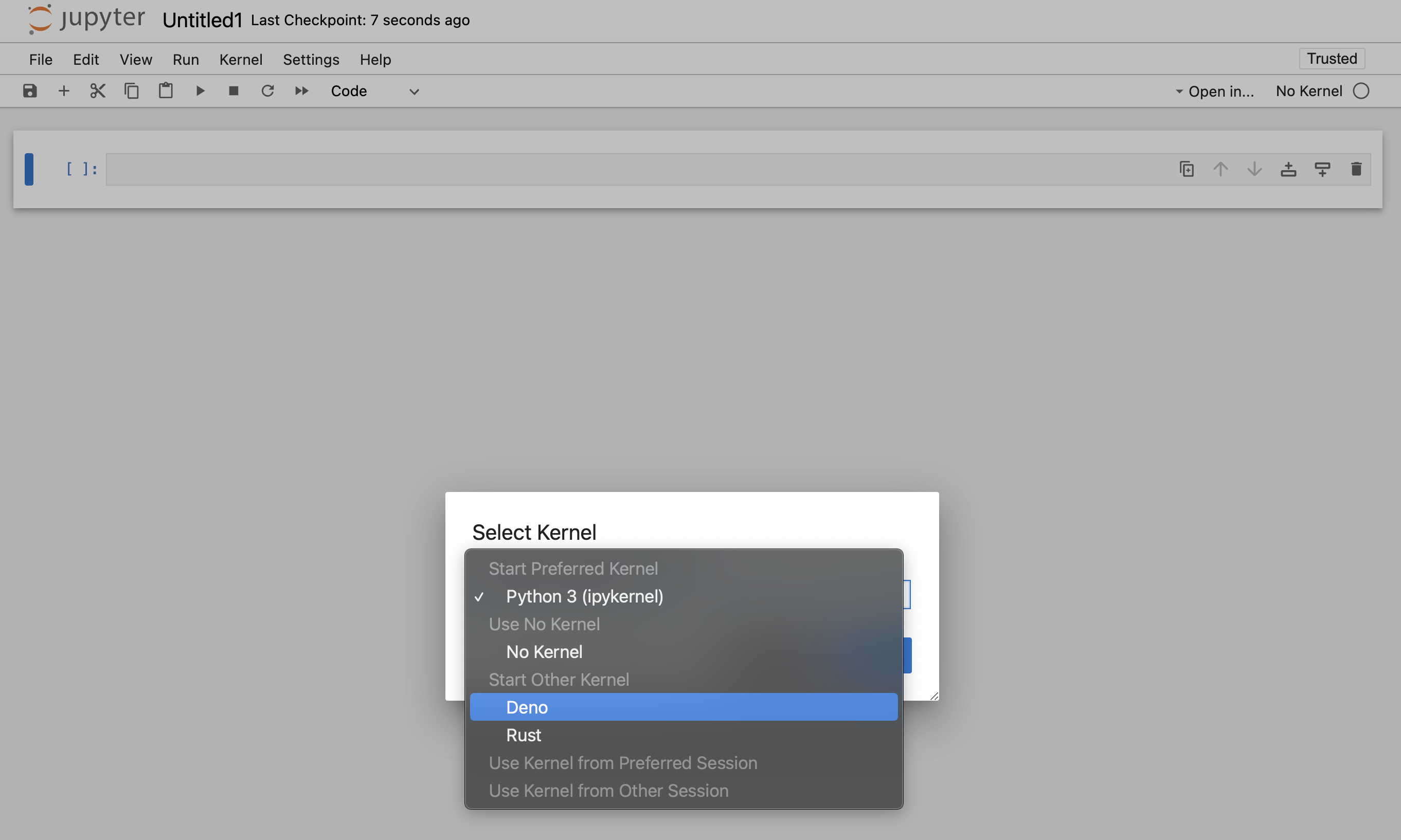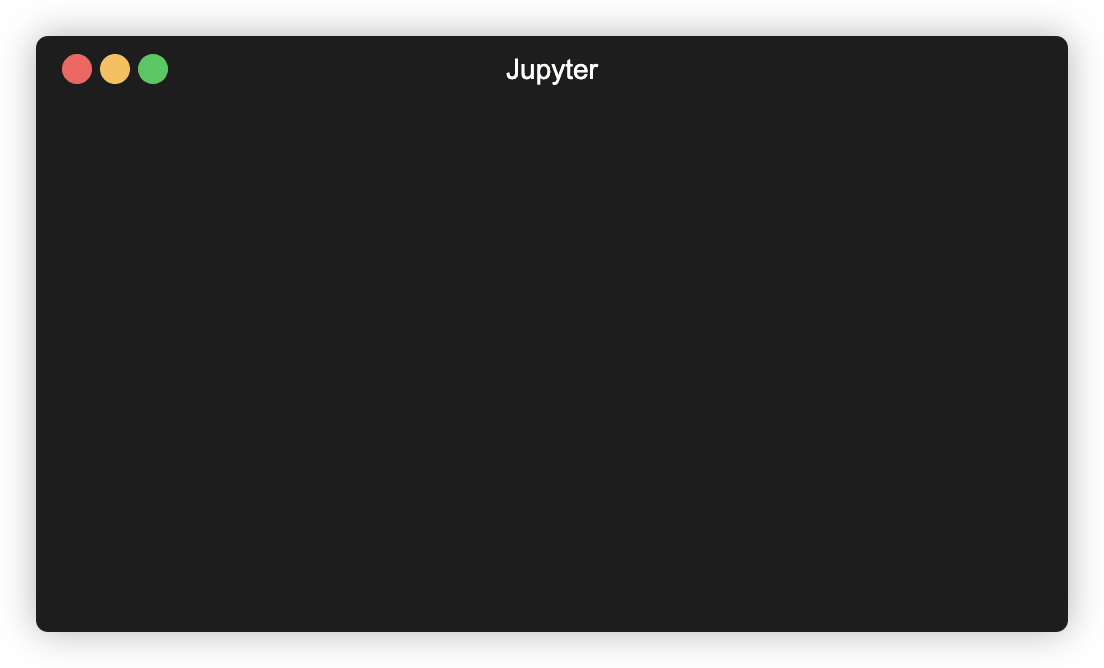Jupyter Kernel for Deno
Available since 1.37.0
Deno ships with a built-in Jupyter kernel that allows you to write JavaScript
and TypeScript; use Web and Deno APIs and import npm packages straight in your
interactive notebooks.
deno jupyter is currently unstabledeno jupyter is currently an unstable feature and thus requires the
--unstable flag. We intend to stabilize this feature in an upcoming release.
Quickstart
Run deno jupyter --unstable and follow the instructions.
You can run deno jupyter --unstable --install to force installation of the
kernel. Deno assumes that jupyter command is available in your PATH.
After completing the installation process, the Deno kernel will be available in the notebook creation dialog in JupyterLab and the classic notebook:

You can use the Deno Jupyter kernel in any editor that supports Jupyter notebooks.
VS Code
- Install the VSCode Jupyter extension
- When on a new or existing Notebook, click creating a new Jupyter Notebook select "Jupyter kernels" and then select Deno
JetBrains IDEs
Jupyter Notebooks are available right out of the box.
Rich content output
Deno Jupyter kernel allows you to display rich content in your notebooks using MIME types that Jupyter supports.
To do that, you need to return any JavaScript object that has a
[Symbol.for("Jupyter.display")] method. This method should return a dictionary
mapping a MIME type to a value that should be displayed.
{
[Symbol.for("Jupyter.display")]() {
return {
// Plain text content
"text/plain": "Hello world!",
// HTML output
"text/html": "<h1>Hello world!</h1>",
}
}
}
Since it's just a function, you can use any library you want to format the output. This is not tied to Deno itself in any way, because we're using a regular JavaScript symbol index.
jupyter console integration
You can also use Deno Jupyter kernel in the jupyter console REPL. To do that,
you should launch your console with jupyter console --kernel deno.
